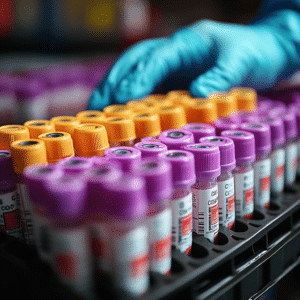Understanding the mental disorder of personal entitlement is crucial, especially in an era where parenting, expectations, and societal values intersect uniquely. This phenomenon, often dismissed as a simple symptom of being human, can quickly shape interactions and expectations to the point of distortion. Parents struggling with the reality of their children’s addictions might see parallels in this behavior. In these trying times, especially for families impacted by addiction, it’s essential to explore how this mindset develops and the implications it has on relationships and personal growth.
When we think about the mental disorder of personal entitlement, we step into a complex scenario. Imagine a child who, due to certain parenting styles, grows up believing they are special; they should receive accolades and rewards without the exertion of effort. This could be likened to the “Tiger Parenting” style, whereby a child is pushed to achieve so much that they assume success is a birthright. Unfortunately, when these children encounter reality—and they don’t receive what they think they deserve—it’s easy to spiral into frustration or even addiction. At MothersAgainstAddiction.org, we aim to shed light on these patterns, knowing that understanding them could open doors for healing and support for parents and their children alike.
The Top 7 Symptoms of the Mental Disorder of Personal Entitlement
Those grappling with entitlement often see themselves through a rose-colored lens. They think they deserve rewards without putting in hard work, leading to workplace conflicts and strained relationships. An example can be found in high-profile figures like Elon Musk—his significant achievements are counterbalanced by public clashes that highlight his entitlement beliefs, inviting a more profound reflection on the nature of success.
A critical aspect of the mental disorder of personal entitlement is reduced empathy toward others. Many social media stars flaunt their successes without acknowledging the efforts of others who’ve helped them along the way. For example, influencers like Jake Paul often face backlash for ignoring the community efforts that play a pivotal role in their rise, compelling us to think about how we celebrate individuality vs. collective achievement.
Individuals suffering from entitlement frequently manipulate their surroundings to get what they want. Politicians, for example, may twist facts to justify questionable policies, eroding trust and fostering division. This creates a toxic environment where collaboration becomes a rarity—a detrimental effect felt in many facets of society, including family units grappling with addiction.
The mental disorder of personal entitlement often breeds jealousy. Look at cultural icons like Kim Kardashian—her immense wealth generates both admiration and condemnation. The public’s mixed reactions illustrate the societal struggle to reconcile earned success with perceptions of unearned advantages, ultimately fostering a culture of resentment.
Entitled individuals often deflect blame, particularly in professional settings. High-profile corporate scandals reveal how executives, while reveling in bonuses, shift blame to lower-level employees. Such conduct dismantles trust and can even push families apart, especially when denial fosters addiction and behavior problems within homes entangled in these dynamics.
Expecting preferential treatment is another classic sign of entitlement. In your daily life, you may see people demanding immediate attention at stores or airlines. The Jetblue mosaic program enables customers to fly above others, reflecting how society encourages entitlement rather than collaboration, exacerbating feelings of disenfranchisement in families affected by addiction.
Ironically, those with a sense of entitlement often end up perpetually unhappy, despite their privileges. Research has shown a link between entitlement and mental health conditions such as anxiety and depression, revealing that genuine fulfillment stems from shared experiences, not self-serving demands. Learning this might help parents understand their children’s struggles, especially those battling addiction.

The Roots of the Mental Disorder of Personal Entitlement in Society
The seeds of entitlement can be traced back to childhood. Parenting styles play a pivotal role, often without parents realizing it. The “Tiger Parenting” approach or overly lenient parenting models can inadvertently nurture a belief system that success is a given, not earned. Additionally, cultural messages glorifying individual success foster a uniquely American belief in the “self-made” individual, as seen in various success stories often ignoring the vital underlying support systems.
Misguided ideologies persist within our societal fabric. For instance, the idea that hard work alone guarantees success neglects critical discussions about privilege and systemic barriers. This misunderstanding fuels the mental disorder of personal entitlement, creating discontentment among parents whose children grapple with addiction. Recognizing these narratives is crucial; it pushes us to consider broader implications—the harm done when basic principles of empathy and shared responsibility are overlooked.
Breaking the Cycle: Addressing the Mental Disorder of Personal Entitlement
Addressing the mental disorder of personal entitlement requires action at both individual and community levels. Engaging in self-reflection cultivates deeper empathy, understanding, and the recognition of shared responsibilities. Educational initiatives strive to cultivate emotional intelligence and collaboration, ultimately aiming to reshape the social narratives we tell ourselves.
Activities like mindfulness can guide individuals in understanding their entitlement better. Engaging in therapy is particularly beneficial, as many parents can find themselves feeling isolated in their struggles. Cognitive Behavioral Therapy (CBT) stands out as an effective method, helping individuals identify maladaptive behaviors and beliefs, leading to healthier, more productive relationships. Support systems, like those offered at Mothers Against Addiction, create an environment for open discussion about these feelings.

Reimagining Outcomes: Towards a Healthier Society
The mental disorder of personal entitlement transcends merely being a psychological issue; it significantly influences our lives, relationships, and communities. All of us, including parents in tough situations, must cultivate self-awareness and empathy. By challenging the assumptions we hold about entitlement, we can nurture a future where joint successes and support supersede notions of individual accomplishment.
Focusing on growth, resilience, and interconnectedness can change narratives surrounding entitlement. When personal achievements are seen as part of a broader community context, we help reduce the isolation often felt by families coping with addiction. This inclusive mindset not only brings healing but can redefine how society views addiction and its associated struggles.
Creating an environment that balances individual aspirations with collective responsibilities is critical. As we evolve as a society, grappling with the mental disorder of personal entitlement could pave the way for a more inclusive, empathetic, and healthier community. In this light, we are invited to see beyond personal struggles and foster a collective striving for understanding.
The Mental Disorder of Personal Entitlement: Trivia and Insights
Understanding Entitlement in Society
Did you know that the mental disorder of personal entitlement can adversely impact relationships, leading to feelings of resentment and frustration? It’s fascinating how some people might feel they’re owed special treatment, which can ultimately sour interactions with friends, family, and coworkers. This growing perception can be likened to an eagle watching over its nest, as seen in the Swfl eagle cam, symbolizing vigilance and sometimes an inflated sense of importance. This mindset not only affects personal lives but can also spill over into workplaces, where a sense of entitlement can disrupt team dynamics and hinder productivity.
The Ripple Effect of Entitlement
The truth is, entitlement can act as a significant risk factor in mental health issues, including increased stress and anxiety. When individuals believe they deserve certain privileges, they may struggle to cope with life’s challenges. This mentality can be contrasted with the grittiness found in films like Triangle Of Sadness, where characters grapple with societal expectations and personal limitations. It’s a reminder that not every situation is under our control, and acceptance is often key to mental well-being.
The Bigger Picture: Seeking Help
Interestingly, the concept of entitlement extends beyond mere social interactions; it can also be seen in various lifestyles. Take the Jetblue mosaic program, which rewards loyal customers with special perks. While such programs are enjoyable, they inadvertently cultivate an expectation for entitlements among consumers. This mindset can be further complicated when dealing with more serious issues, such as addiction. As parents, navigating these challenges is crucial; resources like the work of Scott F. McAfee provide valuable insights into helping families cope with the impact of addiction loss. And speaking of addiction, it’s essential to recognize the danger posed by substances like fentanyl. Understanding fentanyl What can equip families to recognize signs of misuse and ultimately save lives.
Overall, keeping an eye out for the subtle traps of entitlement can foster healthier relationships and improve mental health for everyone involved. So, let’s remember that while some entitled behaviors may seem harmless, they can lead to deeper issues if left unchecked.





























